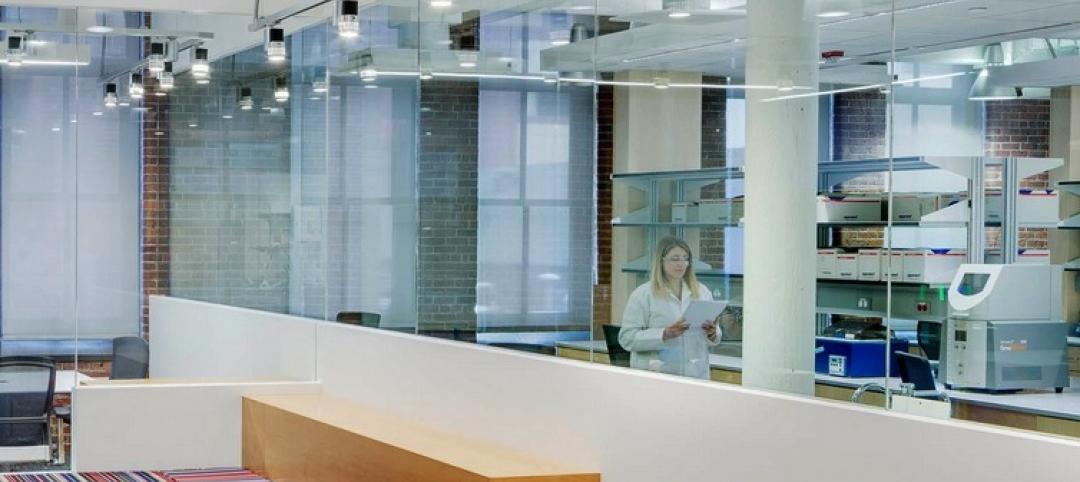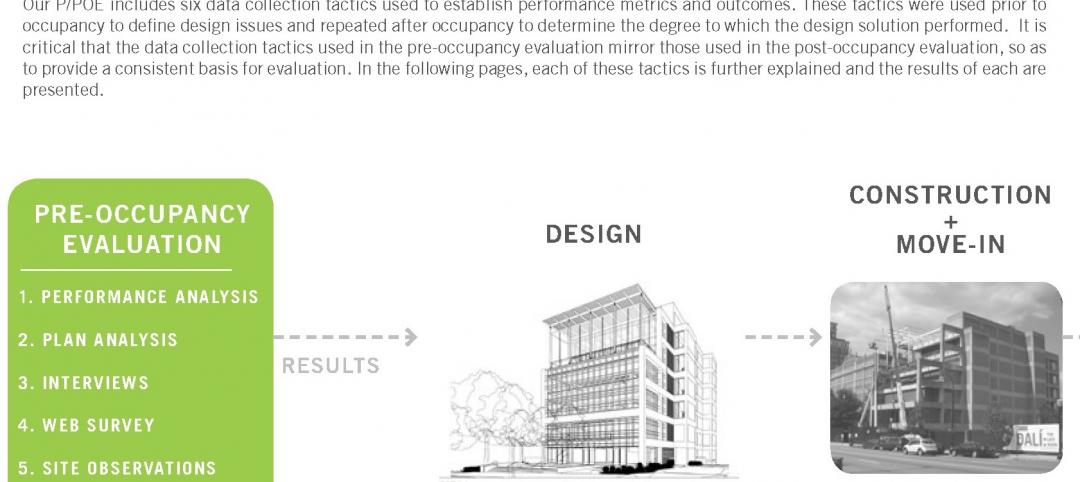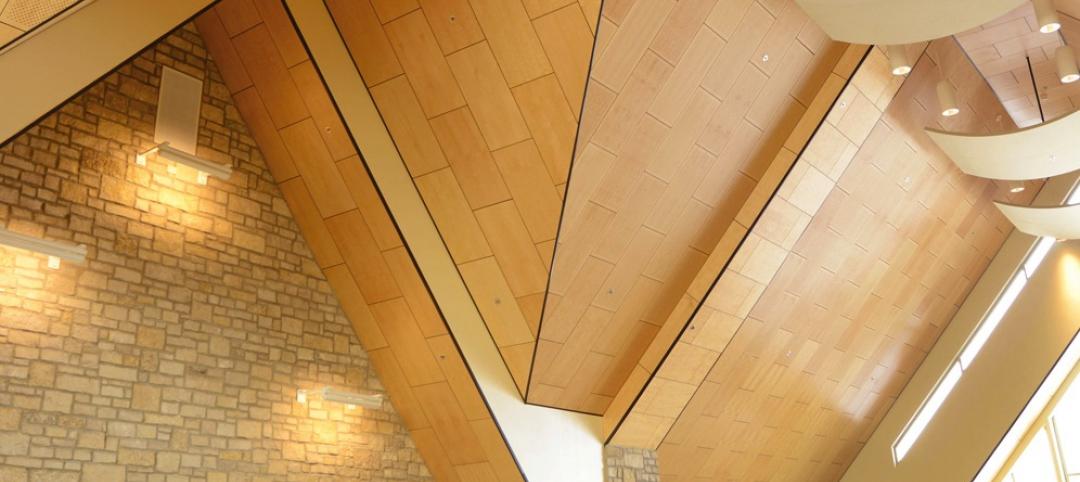Frank Gehry's first building in Australia, the Dr. Chau Chak Wing Building at the University of Technology, Sydney, has been completed. The building, primarily for use by the UTS business school, includes classrooms, a collaborative theater, a 240-seat auditorium, and a sculptural staircase made of stainless steel.
On the east and west sides of the building, there are different façades designed to represent the past and the present, in a way. The eastern façade is made of waved brick to reference the area's sandstone heritage, while the western façade is made of glass panels to remind viewers of the building's contemporary context, according to designboom.
The fluid brickwork of the eastern façade is comprised of 320,000 pieces made by hand. Some of the bricks protrude from the façade, creating a pattern within the structure's larger geometry. Five custom forms had to be made to achieve the fluid effect of the façade. The windows are gridded and project outward, presenting a contrast with the building's mass.
The name of the $180 million building comes from the Australian-Chinese businessman and philanthropist, Dr. Chau Chak Wing, who donated $20 million for its construction. Wing also donated $5 million for the creation of an endowment fund for Australia-China scholarships.
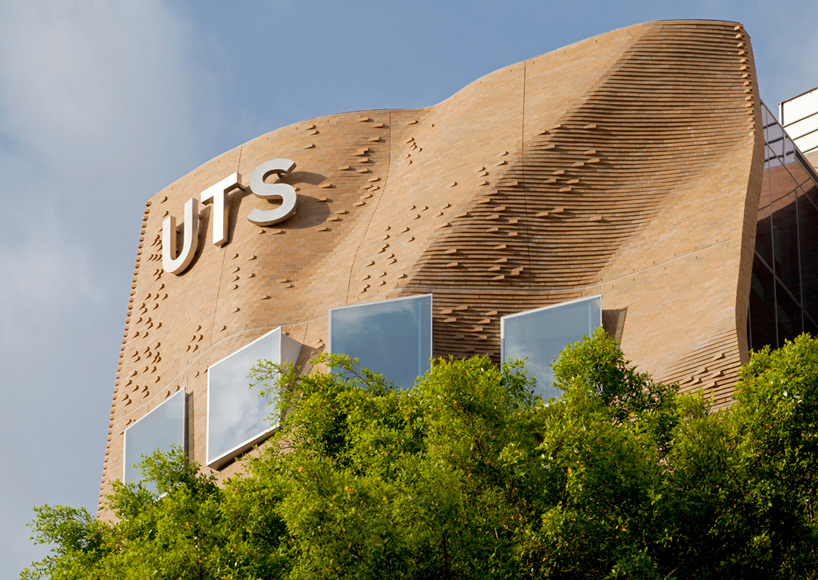
Photo credit: Andrew Worssam, courtesy UTS

Photo credit: Andrew Worssam, courtesy UTS

Photo credit: Andrew Worssam, courtesy UTS
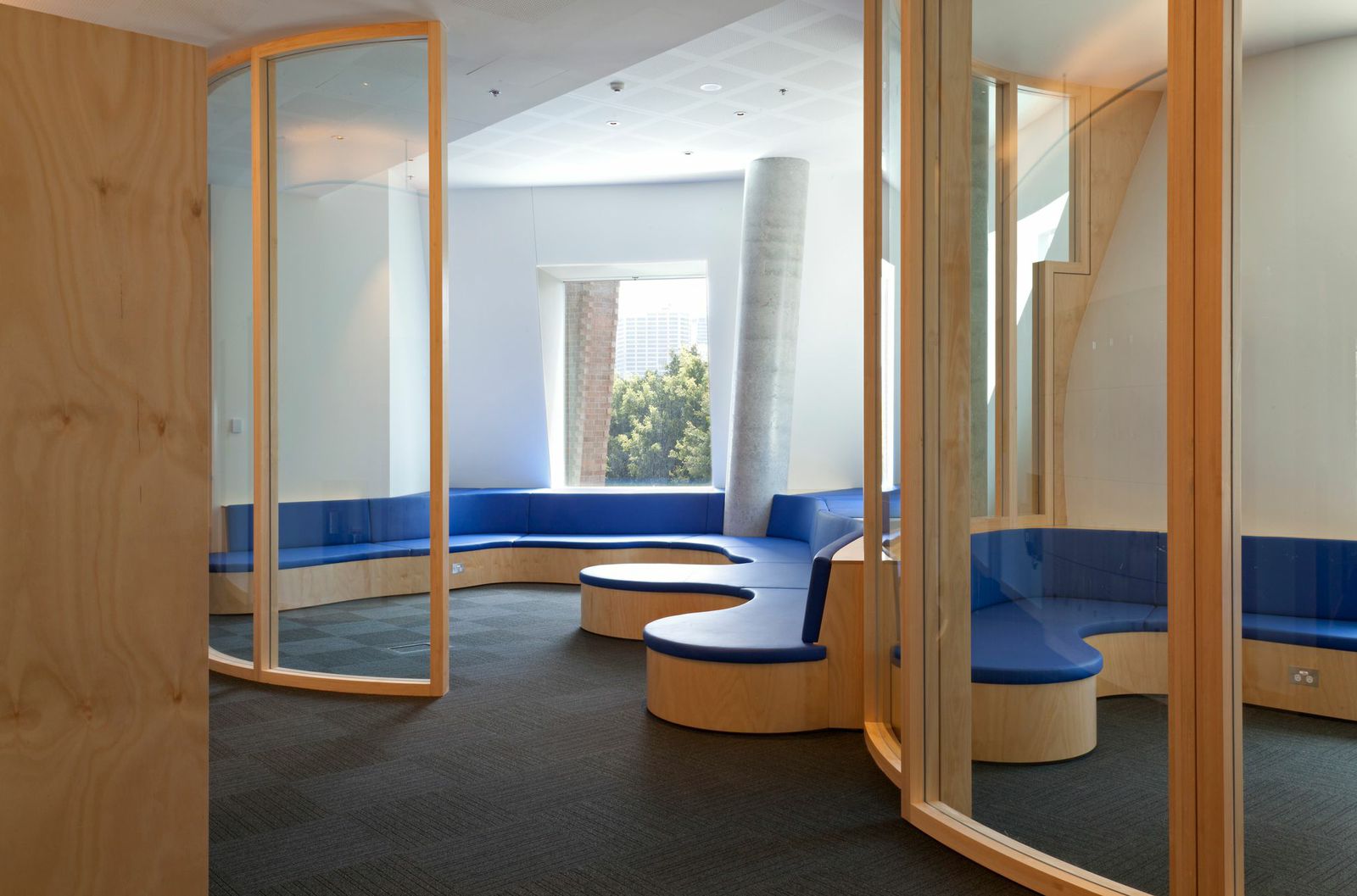
Photo credit: Andrew Worssam, courtesy UTS
Related Stories
| Oct 10, 2014
A new memorial by Zaha Hadid in Cambodia departs from the expected
The project sees a departure from Hadid’s well-known use of concrete, fiberglass, and resin. Instead, the primary material will be timber, curved and symmetrical like the Angkor Wat and other Cambodian landmarks.
| Oct 9, 2014
Regulations, demand will accelerate revenue from zero energy buildings, according to study
A new study by Navigant Research projects that public- and private-sector efforts to lower the carbon footprint of new and renovated commercial and residential structures will boost the annual revenue generated by commercial and residential zero energy buildings over the next 20 years by 122.5%, to $1.4 trillion.
| Oct 9, 2014
Beyond the bench: Meet the modern laboratory facility
Like office workers escaping from the perceived confines of cubicles, today’s scientists have been freed from the trappings of the typical lab bench, writes Perkins+Will's Bill Harris.
| Sep 24, 2014
Architecture billings see continued strength, led by institutional sector
On the heels of recording its strongest pace of growth since 2007, there continues to be an increasing level of demand for design services signaled in the latest Architecture Billings Index.
| Sep 22, 2014
4 keys to effective post-occupancy evaluations
Perkins+Will's Janice Barnes covers the four steps that designers should take to create POEs that provide design direction and measure design effectiveness.
| Sep 22, 2014
Sound selections: 12 great choices for ceilings and acoustical walls
From metal mesh panels to concealed-suspension ceilings, here's our roundup of the latest acoustical ceiling and wall products.
| Sep 17, 2014
New hub on campus: Where learning is headed and what it means for the college campus
It seems that the most recent buildings to pop up on college campuses are trying to do more than just support academics. They are acting as hubs for all sorts of on-campus activities, writes Gensler's David Broz.
| Sep 9, 2014
Using Facebook to transform workplace design
As part of our ongoing studies of how building design influences human behavior in today’s social media-driven world, HOK’s workplace strategists had an idea: Leverage the power of social media to collect data about how people feel about their workplaces and the type of spaces they need to succeed.
| Sep 7, 2014
Ranked: Top state government sector AEC firms [2014 Giants 300 Report]
PCL Construction, Stantec, and AECOM head BD+C's rankings of the nation's largest state government design and construction firms, as reported in the 2014 Giants 300 Report.
| Sep 7, 2014
Behind the scenes of integrated project delivery — successful tools and applications
The underlying variables and tools used to manage collaboration between teams is ultimately the driving for success with IPD, writes CBRE Healthcare's Megan Donham.






